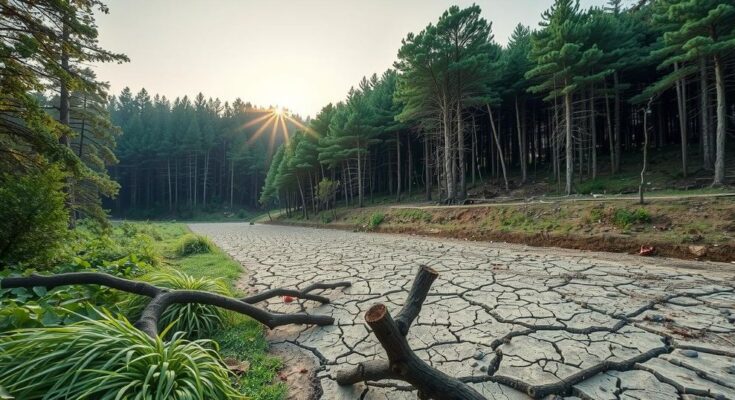The Vital Role of Forests in Climate Stability
Forests play a crucial role in maintaining our climate by acting as carbon sinks, drawing carbon dioxide from the atmosphere. This natural process involves trees absorbing CO2, storing it as carbon in their structure and the soil, thus stabilizing our climate. However, when forests are cleared or burned, this stored carbon is released back into the atmosphere, exacerbating climate change.
Alarming Rates of Deforestation
In 2023 alone, the world lost 3.7 million hectares of tropical forests, which amounts to the loss of approximately ten soccer fields of forest every minute. This massive deforestation accounted for about six percent of global carbon dioxide emissions, accentuating the urgency of the situation. Each tree’s decay and death contribute to an ongoing, quick carbon cycle, contrasting sharply with the more stable fossil fuel carbon cycle.
The Impact of Burning Fossil Fuels
As fossil fuels are burned for energy, ancient carbon from long-dead plants is released as CO2, intensifying global warming. This accumulation of carbon dioxide has reached historic levels, creating an imbalance between emissions and the absorption capacity of existing carbon sinks, like forests. The rising CO2 levels trap heat, driving the relentless warming of our planet.
The Fragility of Carbon Offsets
Carbon offsets, often sought through tree-planting efforts, are not a reliable solution for climate pollution. As climate change leads to more intense wildfires, the trees planted for offsets are at risk of being destroyed. Thus, these offsets can become fragile and ineffective against the growing unpredictability of our climate.
A Path Towards Sustainable Solutions
The silver lining is that we can combat climate pollution without solely relying on offsets. By harnessing renewable energy sources like solar and wind power, we can significantly reduce emissions and move towards a sustainable future. Protecting and sustainably managing forests is critical, yet we must also rapidly decrease our dependence on fossil fuels to prevent transforming vital carbon sinks into sources of carbon.
Moving Forward Together
To safeguard our climate and future generations, we need to act decisively. Emphasizing the protection of natural ecosystems and forest restoration is paramount for immediate CO2 reduction. Simultaneously, drastic cuts in coal, oil, and gas consumption must follow to minimize further damage to our planet.
Stay Informed
Get up to date with the Climate Council for the latest climate insights, research, and actionable ways to help reduce climate pollution.
Forests absorb CO2 and stabilize our climate but lost 3.7 million hectares in 2023, causing 6% of global emissions. Fossil fuel combustion adds ancient carbon to the atmosphere, leading to climate change. Carbon offsets through tree planting are unreliable. We must protect ecosystems and use renewable energy to effectively combat climate change.
Forests are essential in stabilizing our climate by acting as carbon sinks. However, rampant deforestation and the burning of fossil fuels are driving CO2 levels to unprecedented heights, fueling global warming. While carbon offsets through tree planting seem appealing, they are unreliable in combating climate change. Sustainable actions, including protecting ecosystems and transitioning to renewable energy, are vital for a secure future.
Original Source: www.climatecouncil.org.au



